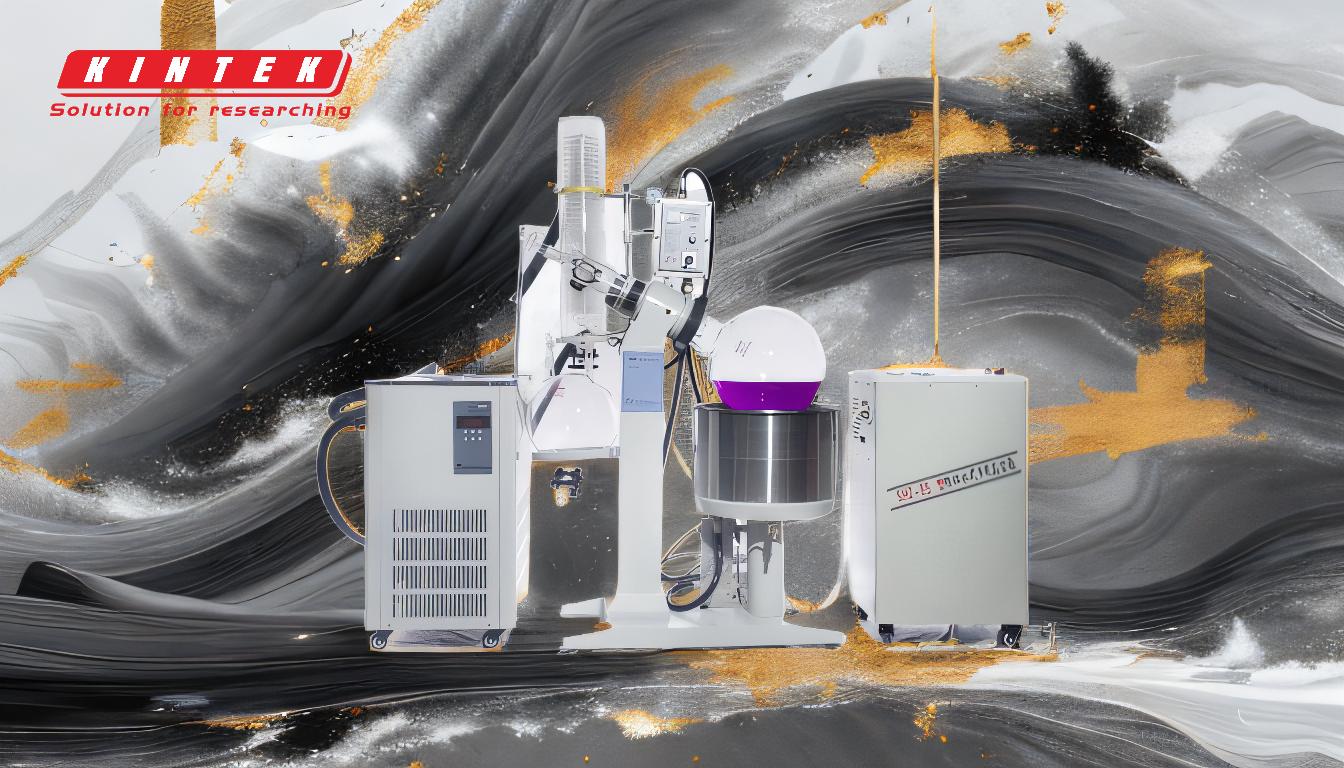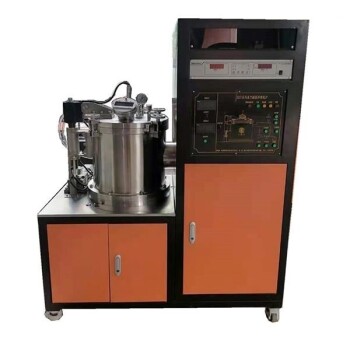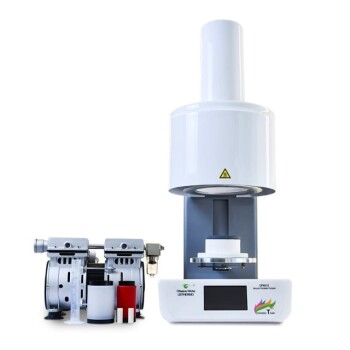A rotary evaporator, often referred to as a "rotovap," is a versatile laboratory instrument primarily used to remove volatile solvents from liquid mixtures through evaporation and condensation. It is widely employed in various fields, including pharmaceuticals, chemistry, biopharmaceuticals, and even molecular cooking. The device operates by reducing pressure to lower the boiling point of the solvent, rotating the sample to increase the surface area for efficient evaporation, and using a warm-water bath to facilitate the process. Key applications include solvent recovery, purification of samples, concentration of solutions, crystallization, and separation of complex mixtures. It is particularly valuable for handling heat-sensitive materials, such as biological products, that may degrade at high temperatures.
Key Points Explained:

-
Primary Function of a Rotary Evaporator:
- The rotary evaporator is designed to remove volatile solvents from liquid mixtures. This is achieved through a combination of reduced pressure, controlled heating, and rotation of the sample flask.
- By lowering the atmospheric pressure, the boiling point of the solvent is reduced, allowing for evaporation at lower temperatures. This is particularly useful for heat-sensitive compounds.
-
Key Applications:
- Solvent Recovery: Rotary evaporators are extensively used to recover solvents after chemical reactions, making them reusable and reducing waste.
- Purification of Samples: They are employed to purify chemical compounds, plant extracts, and essential oils by separating solvents from the desired product.
- Concentration of Solutions: The device is used to concentrate solutions by evaporating excess solvent, leaving behind a more concentrated mixture.
- Crystallization: Rotary evaporators facilitate the crystallization process by removing solvents and allowing the solute to form crystals.
- Separation of Complex Mixtures: They are used to separate components of complex mixtures, such as in the distillation of organic compounds.
-
Industries and Fields of Use:
- Pharmaceuticals: Rotary evaporators are crucial in drug development and production, where they are used to isolate active pharmaceutical ingredients (APIs) and purify compounds.
- Chemical Industry: They are employed for solvent recovery, purification, and distillation of chemical substances.
- Biopharmaceuticals: The device is particularly useful for concentrating and purifying biological products that are sensitive to high temperatures.
- Medicinal Chemistry and Chromatography: Rotary evaporators are used in the preparation and purification of compounds for medicinal chemistry and chromatographic analysis.
- Molecular Cooking: In culinary applications, rotary evaporators are used for non-heat evaporation to retain volatile aromatics in food preparations.
-
Operational Advantages:
- Efficiency: Rotary evaporators are known for their speed and efficiency in removing low-boiling organic solvents.
- Gentle Processing: The ability to operate at reduced pressure and lower temperatures makes them suitable for heat-sensitive materials.
- Versatility: They can handle a wide range of solvents and are adaptable to various laboratory and industrial processes.
-
How It Works:
- The rotary evaporator consists of a rotating flask, a heating bath, a condenser, and a vacuum system. The sample is placed in the rotating flask, which is partially immersed in a warm-water bath. As the flask rotates, the increased surface area promotes efficient evaporation. The solvent vapor is then condensed and collected in a separate flask, while the concentrated sample remains in the rotating flask.
-
Special Considerations:
- Heat-Sensitive Materials: Rotary evaporators are ideal for materials that degrade at high temperatures, as they allow for evaporation at lower temperatures.
- Solvent Compatibility: The choice of solvent and operating conditions must be carefully considered to ensure effective evaporation and prevent damage to the equipment.
In summary, the rotary evaporator is an indispensable tool in laboratories and industries for solvent removal, purification, and concentration processes. Its ability to operate under reduced pressure and lower temperatures makes it particularly valuable for handling delicate and heat-sensitive materials.
Summary Table:
| Aspect | Details |
|---|---|
| Primary Function | Removes volatile solvents through evaporation and condensation. |
| Key Applications | Solvent recovery, purification, concentration, crystallization, separation. |
| Industries | Pharmaceuticals, chemistry, biopharmaceuticals, molecular cooking. |
| Operational Advantages | Efficient, gentle processing, versatile. |
| How It Works | Uses reduced pressure, rotation, and a warm-water bath for evaporation. |
| Special Considerations | Ideal for heat-sensitive materials and solvent compatibility. |
Need a rotary evaporator for your lab? Contact us today to find the perfect solution!


















